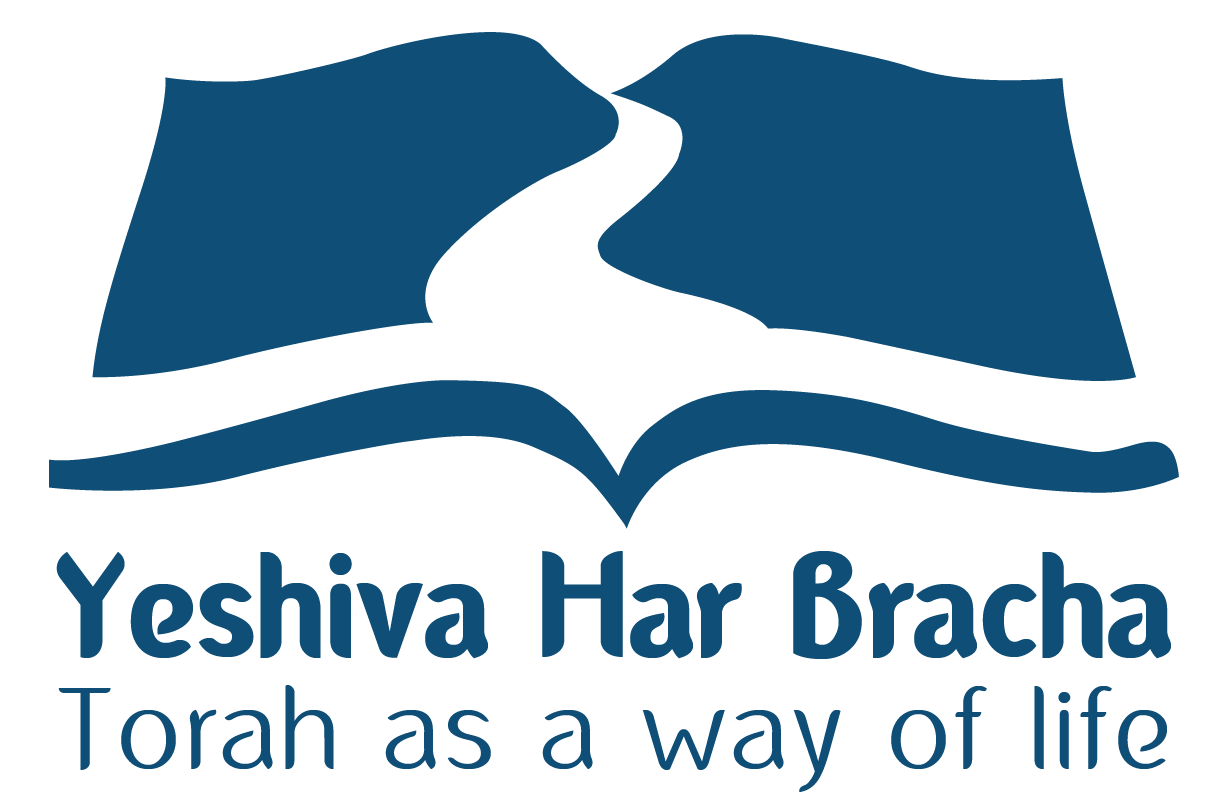Already in the days of the early authorities, the Jewish communities practiced refraining from eating meat and drinking wine during the days of mourning over th destructio Alcoholic beverages are permitted during the Nine Days * At the conclusion of Shabbat that falls within the Nine Days, the one making havdalah is permitted to drink from the wine * It is permitted to build houses, but it is forbidden to expand an apartment or balcony unless there is an essential need for it * For the purpose of a mitzvah, it is permitted even to plaster and paint, and to install curtains and shutters * One does not purchase luxury items such as jewelry, clothing, beautiful vessels, new furniture, and a family car * It is .forbidden to launder clothes in the week in which Tisha B’Av falls * Ashkenazi Jews practice being stringent with the prohibition of laundering from Rosh Chodesh Av
Meat and Wine
According to the law of the Mishnah (Ta’anit 26b), only in the final meal before Tisha B’Av is it forbidden to eat meat and drink wine, and Yemenite immigrants continue to practice this way to this day. However, already in the days of the early authorities, other Jewish communities practiced refraining from eating meat and drinking wine during the days of mourning over the destruction. Some were stringent about this during all the weekdays of the three weeks, and some were stringent during the week in which Tisha B’Av falls. In practice, the custom of Ashkenazi Jews and some Sephardic Jews is to be stringent during all Nine Days, including Rosh Chodesh Av, and this was also the practice of the Ari. According to the custom of most Sephardic Jews, they are stringent from the 2nd of Av, but on Rosh Chodesh, which is a festive day, they do not refrain from meat and wine.
Drinking Alcohol
Alcoholic beverages are permitted during the Nine Days, because they do not have the special significance that wine has, which was used for libations on the altar when the Temple existed. Therefore, from the day the Temple was destroyed and the sacrifices and wine libations ceased, it would have been appropriate to refrain from meat and wine, but we cannot withstand this, but at the very least, we refrain from them during the Nine Days (see Bava Batra 60b).
Havdalah Wine
At the conclusion of Shabbat that falls within the Nine Days, the one making havdalah is permitted to drink from the wine over which he made havdalah. It is possible to drink all the wine in the cup, but it is preferable to make havdalah over grape juice, which does not bring joy. There are some Ashkenazi Jews who practice that if there is a minor who has reached the age of education for blessings of enjoyment but has not yet reached understanding of mourning over Jerusalem (between ages six and nine), the one making havdalah should have intention in the blessing over wine for the child, and the child should drink the wine. But when there is no child of this age present, the one making havdalah drinks the wine (Rama 551:10, and Mishnah Berurah 70).
Ashkenazi Jews who want to drink the havdalah wine are permitted to do so, as the Rama wrote (Darkei Moshe 551:9, in the name of Maharil), that an adult may drink the havdalah wine le’chatchila, for if at a mitzvah meal it is permitted to drink wine, all the more so for havdalah, where the mitzvah is to drink wine. Therefore, in Peninei Halakha (Zmanim 8:13) I wrote that one drinks the havdalah wine without distinction between the communities, and only in a note did I mention that many Ashkenazi Jews prefer when possible to give the wine to a minor who has reached the age of education.
Building and Renovations
It is permitted during the Nine Days to build houses, but it is forbidden to expand an apartment or balcony unless there is an essential need for it. Similarly, it is forbidden to plaster and paint the walls of the house, or to do renovations intended for decoration or luxury that are not essentially necessary, such as replacing cabinets, curtains, and shutters. And when postponing their completion until after the Nine Days is liable to cause great loss, it is permitted to do them.
For the purpose of a mitzvah, such as building a synagogue, it is permitted even to plaster and paint, and to install curtains and shutters. And anything that is for the needs of the public, such as a school, is considered a mitzvah need for this matter. The custom is not to enter a new apartment, purchased or rented, during the Nine Days. But if delaying the entry would cause great loss, it is permitted to enter.
Commerce and Trade
Our Sages instructed to reduce commerce and trade during the Nine Days, and this includes refraining from joyful commerce and trade. That is, one does not purchase luxury items such as jewelry, clothing, beautiful vessels, new furniture, and a family car. Additionally, our Sages instructed that it is good to also reduce the purchase of things that do not bring joy. For example, a person who is accustomed once every few weeks to conduct large shopping for food and other household needs, le’chatchila it is good that he conduct the shopping before or after the Nine Days (according to Shulchan Aruch 551:2; Mishnah Berurah 11, 13). However, a person who has an opportunity to buy something joyful at an especially cheap price, and there is reasonable concern that if he waits until after Tisha B’Av he will lose it – he is permitted to buy it during the Nine Days, and begin to use it only after Tisha B’Av.
Internet Shopping
Q: Is it possible to make purchases on the internet during the Nine Days, when it is known that the products will arrive after Tisha B’Av? And what is the law regarding purchases that I ordered before the Nine Days and arrived during the Nine Days?
A: In the general instruction to reduce commerce and trade and to refrain from joyful commerce and trade, one should refrain from making purchases during the Nine Days. And even though the products will arrive after Tisha B’Av, the very experience of purchasing, even through the internet, is included in commerce and trade, and it has an aspect of joy and negation of mourning. However, products that do not bring joy, and there is no possibility to postpone making their purchase until after Tisha B’Av, may be purchased during the Nine Days. In the case where products that were ordered before the Nine Days arrived during the Nine Days, in order to avoid the final and especially joyful stage of commerce and trade, one should refrain from opening the package until after Tisha B’Av. And only if there is great need for it, is it permitted to open the package during the Nine Days.
Listening to Music During the Three Weeks and Nine Days
There are three types of songs and melodies: The first is joyful songs, such as wedding songs, which should be avoided from the beginning of the three weeks. The second, songs that have neither special joy nor special sadness, including most songs today, as well as most classical works, and these should be avoided from Rosh Chodesh Av. The third, sad songs such as mourning songs for a person who died or about the destruction, which are permitted to be heard even during the Nine Days.
However, it is important to emphasize that when listening to music at high volume, even when it is neutral, the volume gives the song festiveness, and it becomes like a song of joy. Therefore, even songs that are permitted to be heard during the three weeks or the Nine Days should not be listened to at high volume.
Educational-Cultural Events
Q: Is it permitted to play and sing at an educational-cultural event during the Nine Days?
A: It is permitted on condition that these are melodies and songs that are appropriate to the character of the Nine Days, that express the sorrow over the destruction and express longing for the building of the Torah, the Nation, and the Land (see Peninei Halakha: Zmanim 8:4).
Prohibition of Laundering
Our Sages said in the Mishnah (Ta’anit 26b) that it is forbidden to launder clothes in the week in which Tisha B’Av falls. And this is one of the expressions of mourning, that out of sorrow and identification with the deceased or with the destruction of the Temple, a person stops grooming and pampering himself. The prohibition also includes ironing clothes or laundering them in dry cleaning. Even laundering clothes in order to wear them after Tisha B’Av is forbidden, because the one laundering appears as one who diverts his attention from mourning over the destruction.
Time of Prohibition According to Ashkenazi Custom and Most Sephardic Jews
Most Sephardic Jews practice according to the law of the Mishnah, that the prohibition of laundering applies only in the week in which Tisha B’Av falls, and this year when Tisha B’Av falls on Sunday, the prohibition is only on the day of Tisha B’Av itself. Ashkenazi Jews practice being stringent with the prohibition of laundering from Rosh Chodesh Av, and only in honor of Shabbat Chazon do they practice wearing laundered and ironed Shabbat clothes.
Customs of Morocco, Djerba, and Libya
Part of the Moroccan communities and the community of Djerba practice being stringent from the 2nd of Av (Brit Kehunah Orach Chaim 200:9). Libyan Jews practice like Ashkenazi Jews to be stringent during all Nine Days.
Prohibition of Wearing Laundered Clothes and Permitted Clothes
During all the days when it is forbidden to launder, each community according to its custom, it is also forbidden to wear a laundered garment. Similarly, it is forbidden to spread laundered sheets on the bed, or a laundered tablecloth on the table, or to begin using laundered shower towels. However, it is permitted to wear during these days laundered underwear and socks and to change hand towels that became soiled, because since we are accustomed to change them frequently, there is no pleasure or pampering in changing them, but only removal of disgust. In time of need, if no clean underwear remains, it is permitted to launder them. Clothes and bedding of infants and children who are accustomed to soiling their clothes are not included in the prohibition.
Wearing Festive Clothes
Since during the Nine Days one should reduce joy, according to all customs, from the 2nd of Av, one does not wear festive clothes like Shabbat clothes, even if they are not laundered. Before a brit milah, the father and mother, the mohel and the sandak bathe and wear Shabbat clothes, and in time of need, the men shave and get haircuts until the week in which Tisha B’Av falls. And the relatives of the parents in the first degree, such as their parents and siblings, are permitted to wear Shabbat clothes, but do not get haircuts. And the other invitees wear respectable clothes, but not complete Shabbat clothes (Peninei Halakha: Zmanim 8:19). And the same law applies regarding pidyon haben, where the celebrants are the father, mother, and the kohen.
Bathing – Customs of the Lenient and Stringent
Although according to the rabbinic enactment the prohibition of bathing applies only on Tisha B’Av itself, the early authorities practiced being stringent about bathing also in the days before Tisha B’Av. In practice, two main customs became prevalent in Jewish communities.
The lenient ones practiced not bathing in hot water during the week in which Tisha B’Av falls, and they did not refrain from bathing in cold water at all. And the stringent ones did not bathe even in cold water during all Nine Days, and only before Shabbat Chazon, did they bathe a little in cold water.
Today, following the great changes in cleanliness habits, those who are stringent practice not bathing for pleasure during the Nine Days, but do not refrain from bathing for the purpose of cleanliness in lukewarm water with soap and shampoo, in a way that, on one hand, there is no pleasure from the bathing, and on the other hand, they also do not suffer from it, and its entire purpose is for cleanliness. And those who are lenient practice this way only in the week in which Tisha B’Av falls, and this year this has no significance, since Tisha B’Av falls on Sunday.
The Stringent Ones – Ashkenazi Jews, North Africa, and Babylonia
Some mistakenly think that all Sephardic and Eastern Jews are lenient, but in practice even in many communities of Sephardic Jews they practiced being stringent, so that in practice in most Jewish communities they practiced being stringent not to bathe for pleasure during all Nine Days. This was the practice in most North African communities, and this was also the practice in Babylonia (Ben Ish Chai Devarim 16). The custom of the lenient ones was prevalent in Sephardic communities around the Land of Israel (Shulchan Gavoha 551:49) and in some communities in North Africa.
Swimming in a Pool
When the purpose is recreation, even according to the lenient custom, from Rosh Chodesh it is forbidden, because already from the beginning of the month of Av one must reduce joy. And if the purpose is health-related, in the manner of people who are accustomed to swim every day for half an hour in a pool, it is permitted until Shabbat Chazon.
This article appears in the ‘Besheva’ newspaper and was translated from Hebrew.








